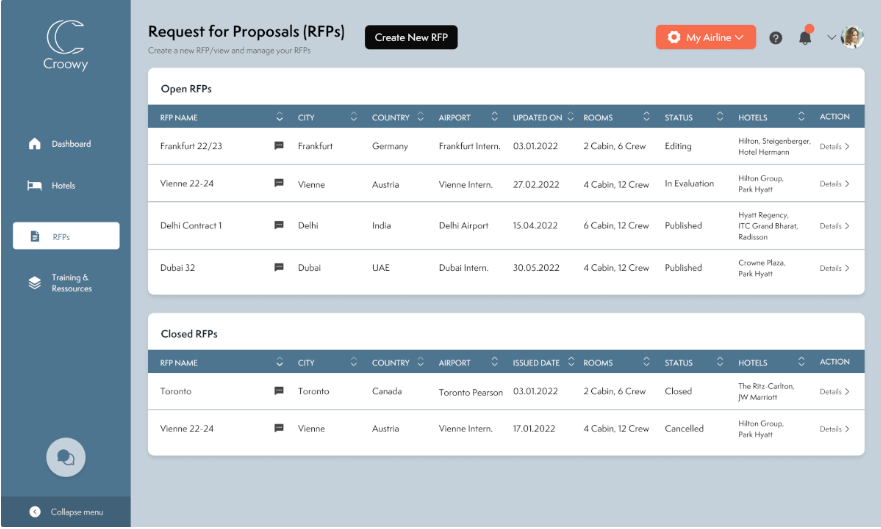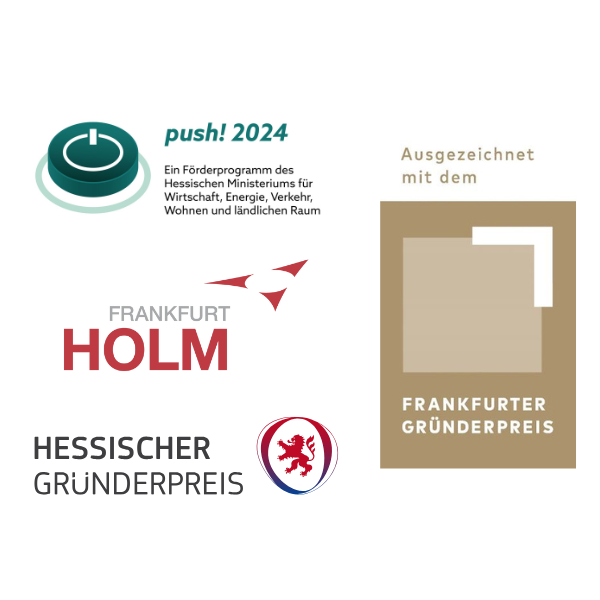As an airline, one of the most significant expenses that you face is the cost of accommodation for your crew members. With the constant demand for flights, it can be a challenge to find the right hotel deals that fit your budget and your crew’s needs. However, by implementing an RFP system for procurement, you can streamline the process of finding and booking hotel rooms for your crew members, saving you time and money.
Croowy is the first RFP system that allows you to issue airline crew requests for proposals to multiple hotels at once. The system automates the process of receiving, analyzing, and comparing proposals, reducing the need for manual coordination and minimizing human error. This can save you valuable time, allowing your procurement team to focus on other important tasks.
Additionally, an RFP system can help you to identify cost savings. The system allows you to track and report on the performance of hotels, which can help you to find the best deals. Furthermore, an RFP system often includes built-in negotiation tools, which can help you to negotiate better rates with hotels.
One of the most notable benefits of using an RFP system is the amount of data it can provide. With it, you can gather data on prices and rates offered by different hotels, as well as monitor their performance over time. This information can support the negotiation process, which can lead to cost savings.
The process of procuring hotel rooms for airline crews can be complicated and time-consuming, but with an RFP system, you can streamline the process and save money. If you’re an airline looking to improve your procurement process, an RFP system is a great solution.
Outsourcing procurement: A cost-effective alternative to an RFP system?
Outsourcing procurement is the process of hiring a third-party company or individual to manage the procurement process on your behalf. By outsourcing, you can save time by not hiring additional staff.
One of the key benefits of outsourcing procurement is the expertise and experience that the third-party company or individual brings to the table. Outsourcing the procurement process allows you to focus on your core business functions, such as flight operations, while the third-party company handles the procurement process.
However, outsourcing procurement is not without drawbacks, such as loss of control, lack of transparency on the process and higher costs due to commission.
As with any business decision, it is important to weigh the pros and cons and determine which option is best for your organization.



